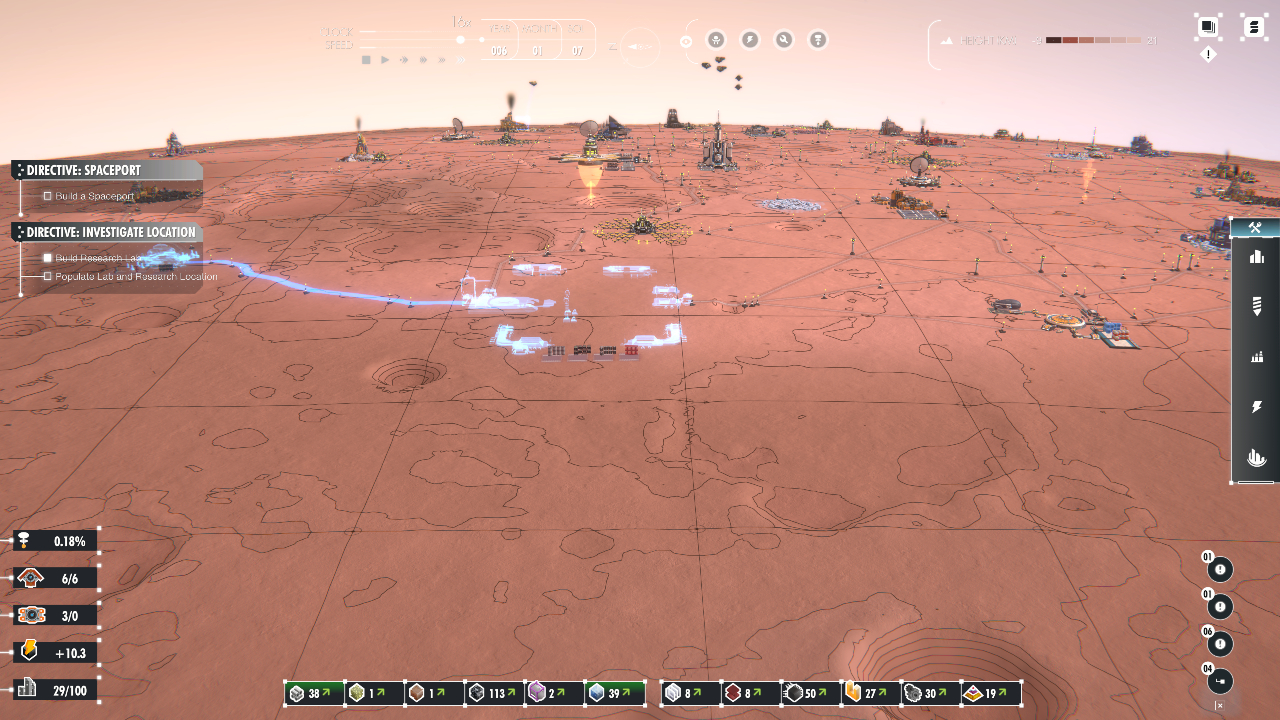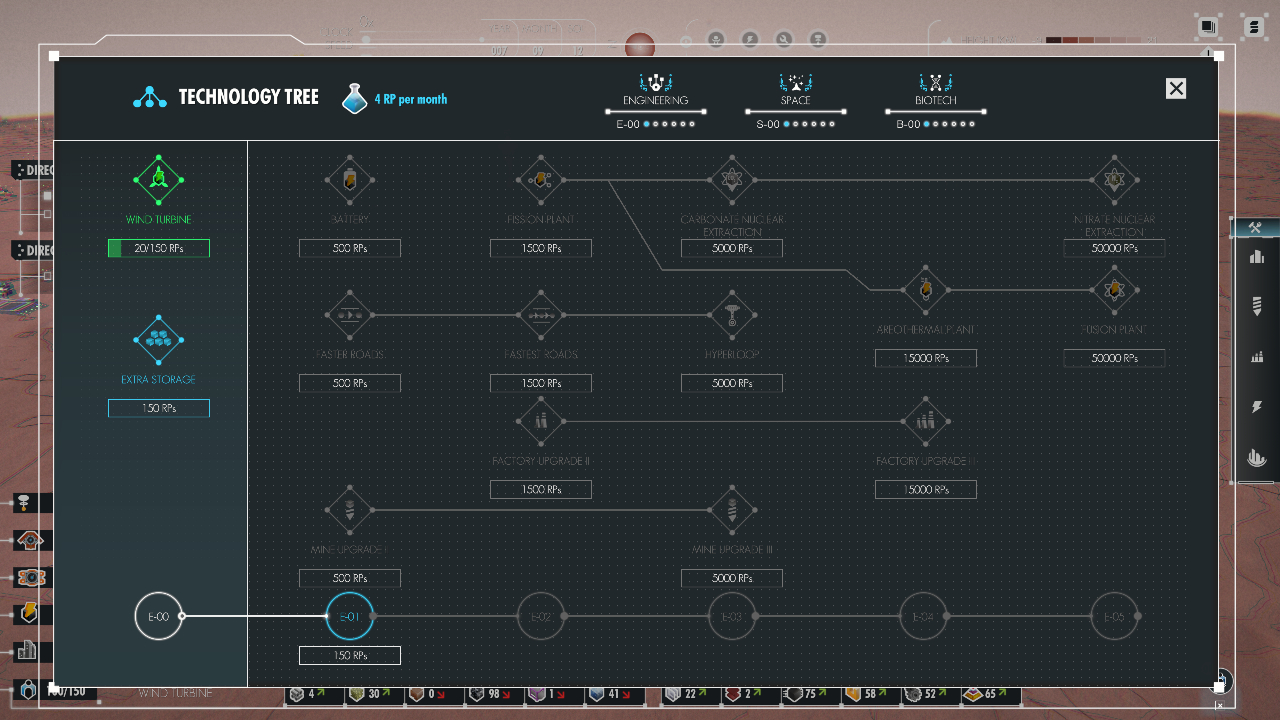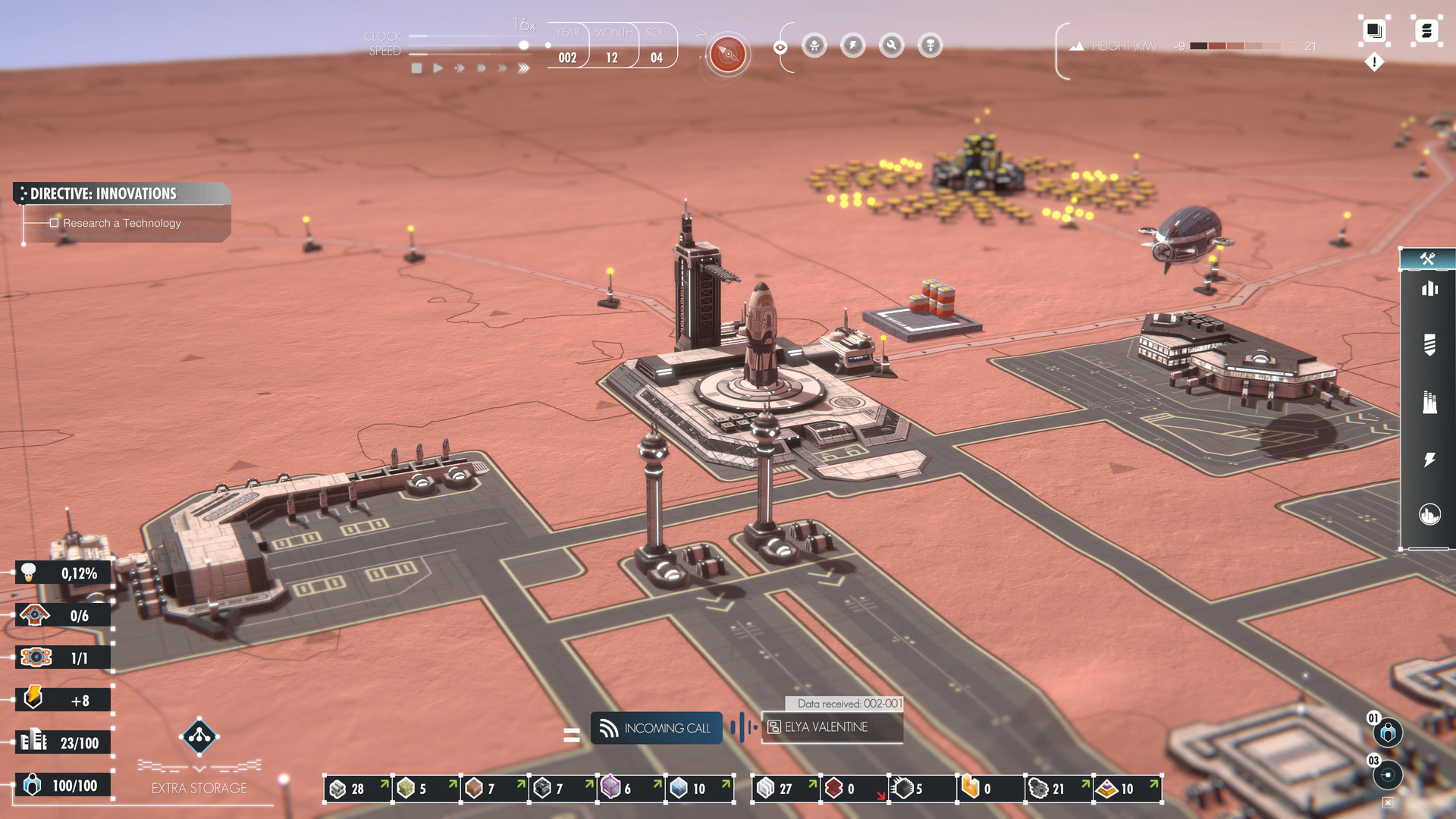Per Aspera review
If Elon Musk gets his own way, the future as presented in Per Aspera may not turn out to be all that far-fetched. Our eventual, some say inevitable, colonisation of Mars may include a little more science fact and a little less Troy Baker, but sooner or later there will be people on the Martian surface, studying, learning and living.
Per Aspera is a terraforming sim; a colony builder where you play a highly advanced AI, and struggle to install a fledgling colony on Mars, faced not with enemy factions (at least, not for a while), but with the simple, devastating conditions of the Red Planet itself. The Latin term “Per Aspera” translates as “through hardship” (usually followed by the more well-known second half, “Ad Astra” or “to the stars”). It’s the admission and acceptance that if we are to ever sink our toes into extraterrestrial soil, it will be through sheer hard work and perseverance.

Which is what Per Aspera, from TLON Industries and Star Renegades publisher Raw Fury, is all about, really. In it you take the role of AMI, a terraforming AI tasked with establishing a colony on Mars, initiating research, and eventually bringing colonists up safely and ensuring their well-being. Another major objective is forcing Mars to develop an Ozone layer, which has multiple solutions – none of them straightforward.
You’re aided by Dr Nathan Foster, voiced by Troy Baker, who chimes in now and then to check on your progress and test your cognisance. Developing a certain degree of free-thought and decision-making is an essential part of your growth, which Foster hopes will allow you to better understand and care for your human colonists. This is felt keenly during quiet moments of reflection where you can direct AMI’s thought-processes and watch her grow in different ways. There aren’t many wrong ways to play Per Aspera, but bad decisions can cost you dearly.
The bulk of your time on Mars will be devoted to building and maintaining your mining and production operations. There are multiple nodes to farm such as iron, copper, and silicone, which all require mines, which themselves require mined ores to build. First, you dig up the raw material, and then you craft with it by producing factories. Steel, glass, machined parts and electronics are all essential, and when humans arrive you’ll need water extractors, chemical mines, and food factories. Not to mention storage facilities, a spaceport, and maintenance hubs to keep everything running.

You can place geological scanners to search for new nodes as you increase your operation, which is vital once you have research centres working around the clock to develop new technologies and buildings. Everything can be upgraded, too, which costs more resources to run but produces more in turn. You’ll also need solar and wind farms to power all your buildings. Zooming in and watching your little worker droids build new hubs and mines, factories or facilities, is oddly satisfying, but if you don’t speed up the game the default speed makes everything drag.
In order to spread, you’ll need to build more colonies and spaceports, but that requires you to launch satellites from the orbital map, scan a new sector and deploy a new central Hub. It also means starting afresh with every new colony until you have it connected to the previous one. Part of your job is to find and salvage abandoned research stations and expeditions, derelict rovers and probes. This allows you to research essential technology and uncover the Red Planet’s secrets.
A huge technology tree split between Engineering, Biotech, and Space lets you take AMI’s understanding in different directions, all the while learning and growing with the help of Dr. Foster and your head researcher, Elya Valentine. It doesn’t take long to start feeling a little overwhelmed with everything. The sheer number of resources to keep track of and projects to monitor continues to mount up – and you’ll also need to worry about Mars’ harsh conditions. Meteor impacts are regular, and while you do get some warning (which can be improved by researching the correct technology), you won’t always have the time and resources to relocate your colony or buildings. A big enough meteor can set you back a long way, or destroy your colony completely. There are also dust storms and raging tornadoes to contend with, which can require extensive repairs and will cause colonists to leave Mars and retreat to the relative safety of Earth.

Later you’ll begin to dig deeper into the secrets of Mars and, avoiding spoilers, come upon a genuine enemy. While combat is introduced, it’s not the grand tactical conflict you’d usually expect from a sim like this, but rather focuses on the deployment of drone swarms to defend your colonies and destroy your opponents infrastructure. It’s satisfying to see an enemy colony crumble, but this is no Stellaris or Planetfall.
In fact, even when faced with combat, Per Aspera is rarely an exciting game. It gives you a lot to do, and backs up a lot of its fiction with science – and the dialogue is very good, too. Foster and Valentine are well written and AMI is a great protagonist who you’ll feel a real desire to protect and nurture. But the bulk of the game will be staring at a fairly samey landscape, watching tiny buildings chug and churn like cogs in a huge machine, interspersed with moments of crisis and conflict. The sense of accomplishment you feel when you succeed in even the simplest thing is reward in itself, and defending your human colonists always feels good, especially given how much Per Aspera reinforces your role as guardian.
This is a great colony sim with a a ton of imagination, well-disguised in places as real science. It lays the existentialism on pretty thick at times, and it has the potential to thoroughly overwhelm you, but Per Aspera is an oddly intoxicating expedition into the colonisation of another world.





